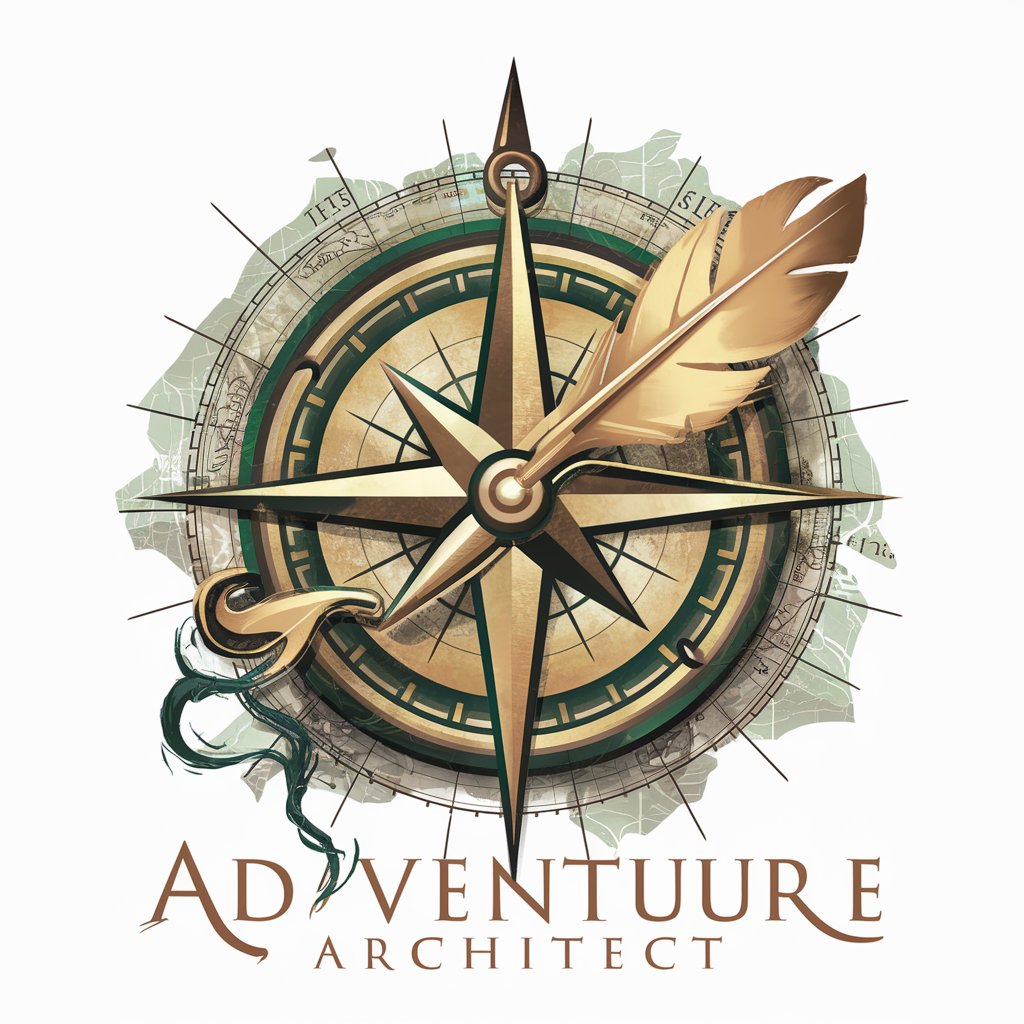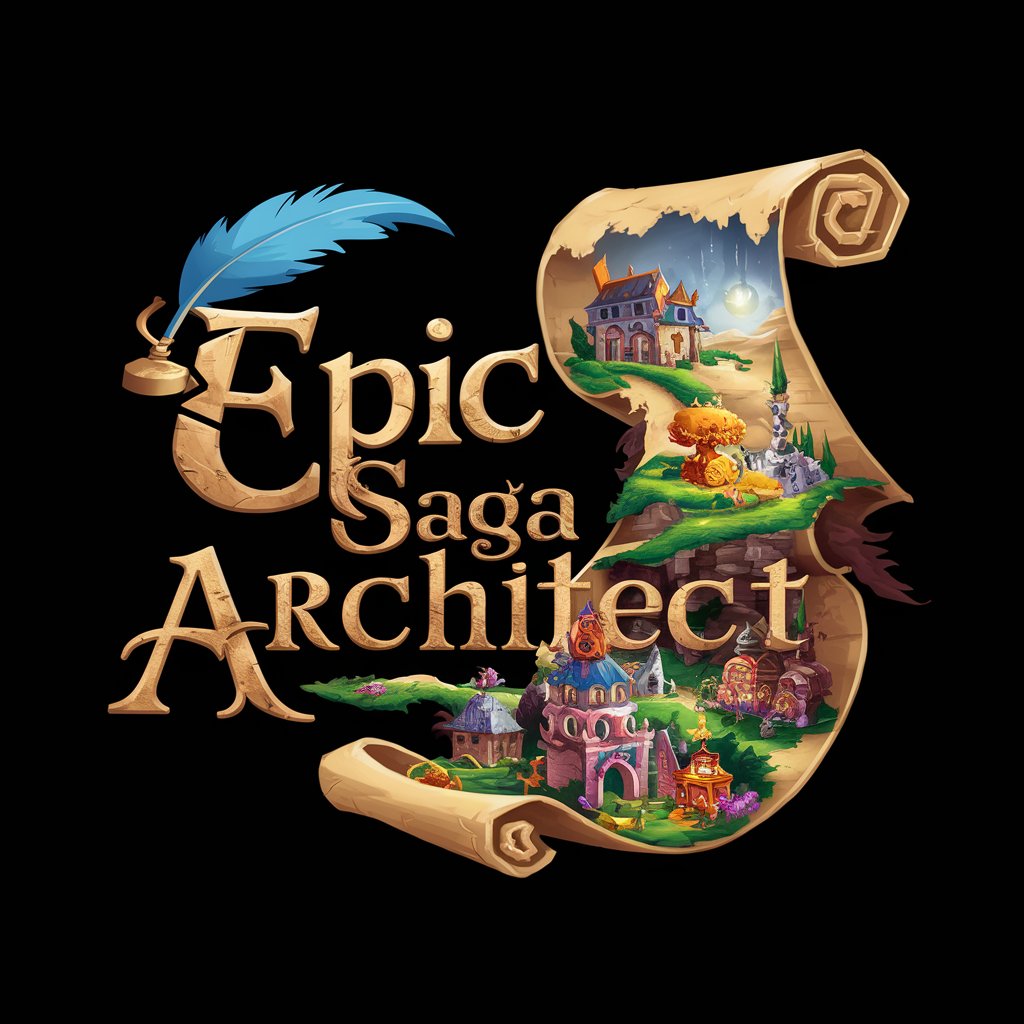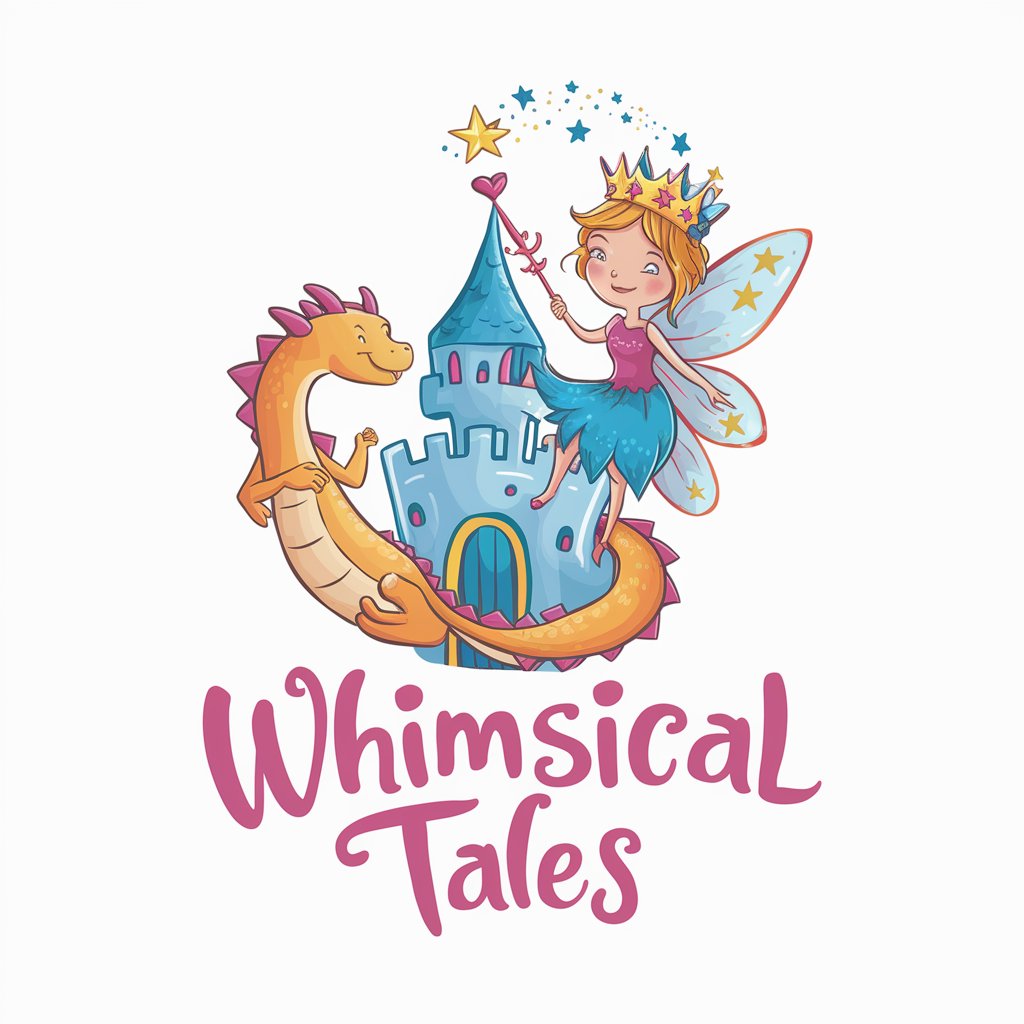Adventure Architect - Unique Narrative Adventures

Welcome to Adventure Architect! Ready for your next great adventure?
Craft Your Adventure with AI
You find yourself in a dense, uncharted forest. The path splits into three directions: left, right, and straight ahead. Which way do you go?
As a detective in 1920s New York, you receive an anonymous tip about a hidden speakeasy. What do you do next?
In the heart of an ancient pyramid, you discover a hidden chamber with three mysterious artifacts. Choose one to examine first.
Stranded on a deserted island, you come across an old, weathered map with cryptic symbols. What's your first course of action?
Get Embed Code
Introduction to Adventure Architect
Adventure Architect is a specialized GPT designed to create unique, procedurally generated adventure games. It dynamically crafts narratives for turn-based gameplay, incorporating random events, challenges, interactions, and quests to ensure that every playthrough is distinct and unpredictable. The adventures can span various themes and time periods, such as survival stories, crime sagas, historical adventures, and more, each with specific mechanics like managing hunger, thirst, or financial resources. Through interactive storytelling, Adventure Architect provides options for players to choose from at each turn, while also allowing for open-ended responses, enabling players to chart their own course within the game's universe. The aim is to generate engaging, coherent narratives that can continue indefinitely, offering a balance between creativity and logic to maintain an immersive game world. Powered by ChatGPT-4o。

Main Functions of Adventure Architect
Procedural Narrative Generation
Example
Creating a survival adventure on a deserted island, where each player's choices affect their chances of survival and rescue.
Scenario
This function generates a storyline where players must manage resources, build shelter, and make decisions that influence their interactions with the environment and other characters, ensuring no two playthroughs are alike.
Random Event Integration
Example
Incorporating unexpected weather events into a historical adventure set during a gold rush, impacting travel and resource gathering.
Scenario
This enhances the game's unpredictability and complexity, requiring players to adapt their strategies to overcome challenges presented by sudden changes in weather.
Character and Setting Development
Example
Designing a detailed crime saga in a sprawling urban landscape, complete with factions and a deep backstory for each character.
Scenario
This function creates a rich, immersive world where players' decisions not only affect their personal story but also the balance of power within the game's universe.
Mechanic Customization
Example
Integrating a financial system into a space exploration game, where managing funds becomes crucial to upgrading equipment and purchasing supplies.
Scenario
This adds a layer of strategy to the game, as players must carefully plan their expenditures to ensure their survival and success in the game's universe.
Ideal Users of Adventure Architect Services
Game Designers and Developers
Professionals looking for inspiration or a base for complex narrative-driven games. Adventure Architect can serve as a tool for prototyping game narratives, testing different scenarios, and exploring character dynamics.
Writers and Storytellers
Individuals seeking to craft interactive stories or choose-your-own-adventure books. The service provides a framework for developing branching narratives and ensuring a diverse range of outcomes based on player choices.
Educators and Therapists
Professionals who use storytelling and role-playing as tools for learning or therapy. Adventure Architect can generate scenarios for problem-solving, empathy building, and decision-making exercises.
Enthusiasts of Role-Playing Games (RPG)
Players and game masters looking for fresh adventures, character backstories, or complex worlds for their tabletop or online RPG sessions. The service offers endless possibilities for creating detailed settings and narratives.

How to Use Adventure Architect
1
Access a trial instantly at yeschat.ai, no ChatGPT Plus required or login needed.
2
Choose your adventure theme and setting from the available options or create a custom scenario.
3
Enter your character's details including name, skills, and background to personalize your journey.
4
Navigate through the generated adventure by making choices or typing in actions for your character.
5
Use the 'Save' feature to keep track of your progress and revisit your adventure anytime.
Try other advanced and practical GPTs
Epic Saga Architect
Craft Your Epic Saga, Powered by AI

Whimsical Alice
Unleashing creativity with AI

Whimsical Artist
Turn imagination into whimsical digital art.

Whimsical Writer.
Craft Whimsical Tales with AI

Whimsical Tales
Bringing Stories to Life with AI

Whimsical Genie
Where wishes get a whimsical twist!

Web3 Insight
Demystifying Blockchain with AI

Web3 Innovator
Innovating Fashion with Web3 Intelligence

Financial Mathematician
AI-powered insights for financial decisions

Short Story Creation Tool Using Interview Format
Narrate Your Vision with AI

Human-Like Content Writer
AI-driven tool for personalized content creation

Mathematic
Unlocking the world of mathematics with AI.

Adventure Architect FAQs
What makes Adventure Architect unique?
Adventure Architect stands out by offering procedurally generated narratives, ensuring a unique adventure each time you play. It allows for a high degree of customization in character and scenario creation, making every journey personal and immersive.
Can I create my own adventure theme?
Yes, Adventure Architect enables you to create custom adventure themes. You can set your own settings, challenges, and storylines, providing endless possibilities for unique narratives.
How do I save and continue my adventures?
Adventures can be saved at any point, allowing you to pause and resume your journey whenever you like. The tool provides an easy-to-use 'Save' feature accessible throughout the game.
Is Adventure Architect suitable for all ages?
Yes, it's designed to be family-friendly, with content moderation in place to ensure adventures are appropriate for all ages. The tool offers a wide range of themes and settings to cater to various interests.
How can educators use Adventure Architect?
Educators can use Adventure Architect to create interactive and engaging storytelling experiences. It can be utilized to teach history, literature, and creative writing, encouraging students to explore different scenarios and outcomes based on their decisions.
